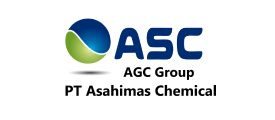FROM LINEAR TO CIRCULAR : ENHANCING RESOURCES IN THE PVC VALUE CHAIN

As global awareness of environmental sustainability grows, industries are increasingly challenged to rethink traditional practices and adopt innovative strategies to minimize waste and enhance resource efficiency. The ASEAN Vinyl Council (AVC) Association Indonesia member, which consists of PVC Resin Producer PT Asahimas Chemical, PT Standard Toyo Polymer, PT Sulfindo Adi Usaha, and PT TPC Indo Plastic and Chemicals, hold an international seminar with the theme "From Linear to Circular – Enhancing Resources in the PVC Value Chain." The seminar was held on September 12, 2024, at the Mövenpick Hotel Jakarta and was attended by the Director of Solid Waste Reduction Ministry of Forestry and Environment, Vinda Damayanti, and 100 participants consisting of government officials and associations, industries, researchers, recycling practitioners, and academics from ASEAN countries to address the significant issues surrounding the PVC value chain in the context of a circular economy.
The main purpose of the seminar is to introduce and explore the PVC value chain by highlighting the roles and interactions within it, aiming to foster a deeper understanding of how these elements contribute to sustainability and circularity. This collaborative approach seeks to build a more cohesive network committed to advancing circular economy practices while also encouraging recycling activities in Indonesia and supporting government programs focused on waste management and sustainability.
Discussion topics include regulations regarding the circular economy, the role of PVC in sustainability, interorganizational relationships and collaboration, the development of a PVC recycling database, industry contributions to sustainability, and advancements of PVC recycling technologies. Through these discussions, the seminar intends to develop insights, shift perceptions, and increase awareness among stakeholders.
Eddy Sutanto, Chairman of AVC and President Director of PT Asahimas Chemical, said the aim of the seminar is to promote government programs related to UNEA “Plastic Pollution" the Waste Reduction Roadmap of Indonesia, and the Sustainable Development Goals in terms of economic and environmental sustainability pillars, especially in polyvinyl chloride (PVC) industries.
The common knowledge is that PVC followed a linear path, from extraction to production, consumption, and disposal. However, by transitioning to a circular economy, we can minimize waste, reduce our carbon footprint, and create a more sustainable future.
Eddy Sutanto added that the PVC resin industry needs to align with the AVC association's mission, “We shall take an active role to advocate the value of the PVC products through technical information dissemination and education of stakeholders and the community.”
The international seminar featured keynote speakers. Christine Halim - Indonesian Plastic Recycling Association (Asosiasi Daur Ulang Plastik Indonesia – ADUPI), Mochamad Chalid - Center for Sustainability and Waste Management Universitas Indonesia (CSWM UI), Manit Nititanakul - Chulalongkorn University Thailand, Amir Razmjou Chaharmahali - Edith Cowan University (ECU) Australia, Melissa Skidmore - Commonwealth Scientific and Industrial Research Organization (CSIRO) Australia, Hadiyan Fariz Azhar - PT Kita Bumi Global (Kibumi), Teh Chin Yaw - Sun Ace Kakoh, Agung Nugroho - PT Asahimas Chemical, Egi Erlangga - PT Standard Toyo Polymer, Sarjuni Rahmat - PT Wahana Duta Jaya Rucika, Rifqi Hijiri Saputro - PT Lautan Luas Tbk.
In her opening speech, Vinda Damayanti said, Circular economy is a key element to tackle the global municipal solid waste problem. There are 2 main challenges, the total amount of waste generation and the composition of the municipal solid waste. These two challenges also correlate with the United Nations Environment Program report that stated plastic waste has a close connection with triple planetary crises, including climate change, biodiversity loss, and pollution.
She added that this seminar will bring about the right momentum to build post-consumer PVC plastic circular business through collaborative actions among us and the entire of PVC value chains from upstream to downstream, from production to end-of-life treatment. The seminar could deliver innovative outputs and results in benefits to our environment and business from now and the future.



